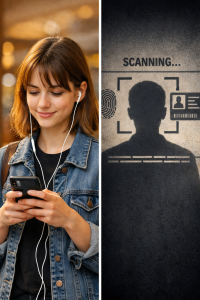Picture this: a storied British carmaker, factories humming with electric dreams and trophies, supply chains stretching from Halewood to China, and then silence. It was not a factory fire or a parts shortage. It was a hacker.
That is more or less how the Jaguar Land Rover saga unfolded in late August and early September 2025.
On 31 August 2025 the company detected a cyber incident. In response they shut down many of their IT systems to try to contain the damage. Overnight production across multiple plants went dark, systems went offline and a forensic excavation began.
At first Jaguar Land Rover insisted there was no evidence that customer data had been stolen. Unlikely most of us thought – who would’t be after the details of customers who can afford luxury cars… As the investigation progressed the picture darkened. The company later admitted that data had in fact been compromised. Exactly how much data, whose data, or the severity of that theft has not yet been fully disclosed.
Who was behind it? A hacker collective calling itself Scattered Lapsus$ Hunters has claimed responsibility. This name suggests a combination of groups that have already built reputations for attacking high-profile targets. These groups thrive on publicity as well as stolen information, which makes them doubly irritating.
How many people were affected? The company has not released a clear number. Speculation ranges from a limited set of records to potentially very large databases. In short, there was definitely data theft, but we still do not know how much, whose, or how damaging it will be.
The consequences for Jaguar Land Rover have been immediate and serious. Production lines stalled, factories shut and suppliers suffered a chain reaction of disruption. The UK government even stepped in with a loan guarantee worth about £1.5 billion to help steady the company. Suppliers, especially smaller ones, faced late payments and some even risked bankruptcy. Dealers struggled to register new vehicles or order parts. Reputational damage has been significant, and questions are being asked about governance and security at the highest levels.
For individuals the impact depends on what was stolen. If your personal details such as name, address, email or date of birth were taken, you are at greater risk of fraud or identity theft. If financial data was exposed you could face unauthorised charges or account abuse. Even if the theft was limited to contact details, expect more spam, phishing attempts and other digital irritations. For employees and suppliers, sensitive corporate material could also be at risk, which means potential legal headaches and loss of trust.
Some people have already reported receiving text messages that vanish once they are opened, like a bad magic trick performed by someone in a hoodie. These so-called “flash SMS” messages can be used by attackers to deliver links, request logins or plant malware. If you open one, your phone itself is not automatically hacked, but if you click a link inside or share information, you could be handing over the keys to your digital life.
How can you know in advance if a text will disappear? Unfortunately you usually cannot. Standard texts and most messaging apps do not show a warning that a message is set to self-destruct. Some versions of Android will label a “flash SMS” as such, and certain apps like Signal or WhatsApp make it clear when disappearing messages are switched on. But if it arrives out of the blue from an unknown number, assume the worst. If it looks odd, contains a link, or makes you think twice, delete it rather than risk it. Better safe than sorry, and certainly better safe than explaining to your bank why you suddenly seem to have ordered four inflatable hot tubs from Latvia.
So what should people do now if they have been affected ?
First, pay attention to any official notices from Jaguar Land Rover. They may provide details on what was affected and what support is being offered. Second, be suspicious of any unexpected messages. Phishing emails pretending to be Jaguar, banks or insurers will try to exploit the confusion. Third, change your passwords, especially if you reuse them across different sites. Use strong, unique ones and a password manager if necessary. Fourth, enable two factor authentication everywhere you can, especially for email and banking. Fifth, check your bank and credit card statements regularly and report anything unusual. Sixth, if you are in the UK, consider credit monitoring or putting alerts on your record with agencies.
For businesses caught in the net, legal and cybersecurity advice is essential. Contracts, supplier relationships and compliance obligations may all be affected. Do not wait for the next shoe to drop before you prepare.
Finally, what can everyone learn from this and do differently to avoid it happening again?
Use strong and unique passwords. Turn on two factor authentication. Stay alert to phishing. Limit how much personal data you share and review which services hold your details. Keep software and systems updated. For organisations, adopt a culture of security that includes regular testing, proper backups and training for staff. And remember to check that your partners take security as seriously as you do.
The Jaguar Land Rover hack is a reminder that no brand is too big to be attacked. The fallout will continue for months and perhaps years. For individuals the best protection is vigilance, good habits and the refusal to make life too easy for cybercriminals. Hackers will always look for a soft target, so do not let it be you. Treat your data like your car keys: keep them secure, never lend them out to strangers and do not leave them on the pub table while you nip to the loo.
With many mobile devices now offering dual SIM cards, it’s worth considering adding a SIM card which you only give to friends and family. That way, you start to divide your phone into a “relatively safe” area and one where you need to be cautious about all forms of communication.
If you have been affected and have concerns, do reach out to us.



